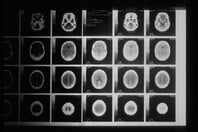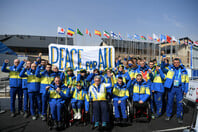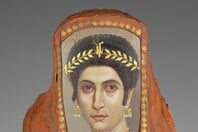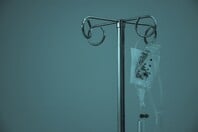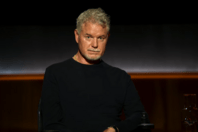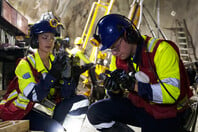«Δεν το αποφάσισα μόνη μου. Γιατροί μού το συνέστησαν. Μου είπαν “δεν θα σου πούμε τι θα κάνεις, αλλά διάβασε αυτά και αποφάσισε”. Οταν θες να κάνεις το καλύτερο για το παιδί σου, ακούς τη γνώμη των ειδικών». Δεν είναι εύκολο για τη Σοφία Φατούρου να μιλάει γι’ αυτό το θέμα. Φέρει βαρέως το γεγονός ότι πριν από λίγα χρόνια είχε πάρει την απόφαση να μην εμβολιάσει τα παιδιά της, εισακούοντας τις πρώτες αντιεμβολιαστικές φωνές που αρθρώνονταν στην Ελλάδα. https://www.kathimerini.gr/929721/article/ygeia/ygeia-epikairothta/antiemvoliastiko-kinhma-koita3a-ta-paidia-moy-kai-eniwsa-egklhmatias______________________MMR vaccine and autismClaims of a link between the MMR vaccine and autism have been extensively investigated and found to be false. The link was first suggested in the early 1990s and came to public notice largely as a result of the 1998 Lancet MMR autism fraud, characterised as "perhaps the most damaging medical hoax of the last 100 years". The fraudulent research paper authored by Andrew Wakefield and published in The Lancet claimed to link the vaccine to colitis and autism spectrum disorders. The paper was retracted in 2010[2] but is still cited by anti-vaccinationists.+Lancet MMR autism fraudhttps://en.wikipedia.org/wiki/Lancet_MMR_autism_fraud______________________...αλλά και για για το έτερο τριπλό/πολυδύναμο εμβόλιο διφθερίτιδας, κοκκύτου, τετάνου (DPT) Controversy in the 1970s-1980s[edit]During the 1970s and 1980s, a controversy erupted related to the question of whether the whole-cell pertussis component caused permanent brain injury in rare cases, called pertussis vaccine encephalopathy. Despite this allegation, doctors recommended the vaccine due to the overwhelming public health benefit, because the claimed rate was very low (one case per 310,000 immunizations, or about 50 cases out of the 15 million immunizations each year in the United States), and the risk of death from the disease was high (pertussis killed thousands of Americans each year before the vaccine was introduced).[24] No studies showed a causal connection, and later studies showed no connection of any type between the DPT vaccine and permanent brain injury. The alleged vaccine-induced brain damage proved to be an unrelated condition, infantile epilepsy.[25] In 1990, the Journal of the American Medical Association called the connection a "myth" and "nonsense".[26] However, negative publicity and fear-mongering caused the immunization rate to fall in several countries, including the UK, Sweden, and Japan. A dramatic increase in the incidence of pertussis followed(...)+Diphtheria, Tetanus, and Pertussis ControversyIn the mid-1970s, an international controversy over the safety of DTP immunization occurred in Europe, Asia, Australia, and North America. In Europe, the opposition was in response to a report from the Great Ormond Street Hospital for Sick Children in London, detailing that 36 children suffered neurologic conditions after DTP immunization. Television documentaries, newspaper reports, and the advocacy group The Association of Parents of Vaccine Damaged Children (APVDC) garnered support and interest in the potential risks and consequences of DTP.The Joint Commission on Vaccination and Immunization (JCVI) – an independent advisory committee in the UK – confirmed the safety of the DTP vaccination in response to decreased vaccination rates and three major pertussis epidemics. Dissenting opinions by medical professionals and an outspoken physician and vaccine opponent Gordon Stewart provided more public confusion and debate about the safety of vaccines. The JCVI finally launched the National Childhood Encephalopathy Study (NCES), which identified every child between 2 and 36 months hospitalized in the UK for neurological illness and determined whether or not DTP immunization was associated with increased risk. The results of the study indicated that the risk was very low, and this data lent support to a national pro-vaccine campaign, and denial of recognition and compensation to the APVDC when the courts determined they lacked evidence to link the DTP immunization to harm.In the United States, the controversy began when the media began reporting on the alleged risks of DTP. A 1982 documentary, DPT: Vaccine Roulette, described alleged adverse reactions to the vaccine while minimizing the benefits. In 1991, a book called A Shot in the Dark discussed potential risks. Parents formed victim advocacy groups, but the American Academy of Pediatrics (AAP), the CDC, and other advocacy groups had a stronger counter response than in the UK. Although the controversy brought on lawsuits against vaccine manufacturers, increased vaccine prices, and the halting of some DTP production, the overall controversy affected immunization rates less than in the UK._______________...δεν φταίνε μόνο οι "μανούλες", θαρρώ.Πολλά φταίνε.









